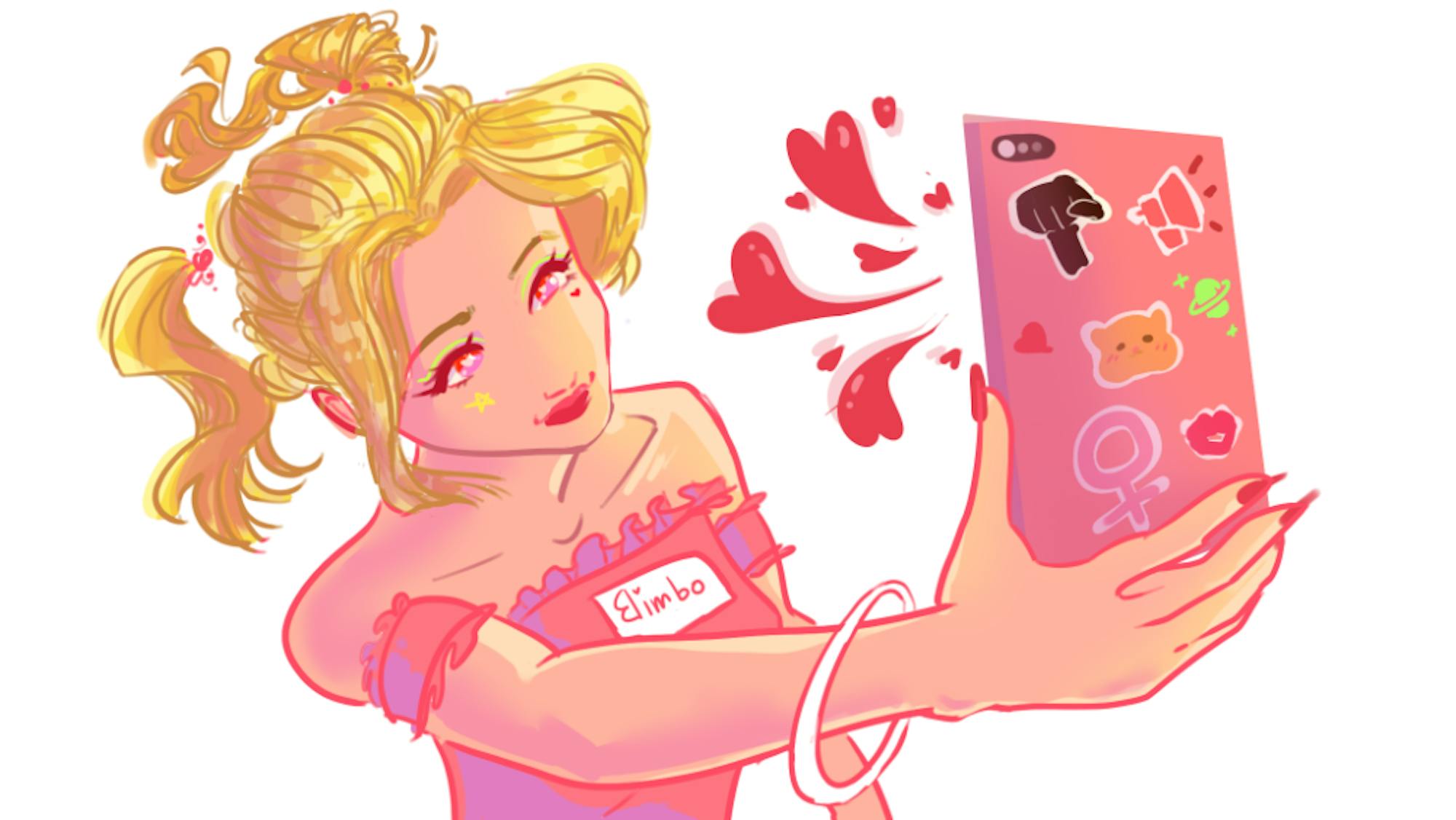
“A bimbo isn’t dumb. Well, she kind of is, but she isn’t that dumb!” TikTok’s pioneer bimbo, Chrissy Chlapecka, said. “She’s actually a radical leftist, who’s pro sex work, pro Black Lives Matter, pro LGBTQ+, pro choice, and will always be there for her girlies, gays and theys.”
Though once considered offensive, Gen Z has officially reclaimed the term “bimbo,” using it as a rallying cry to defy misogynistic standards. Though the idea of bimbofication may seem disrespectful to the strides made for equal rights for women, it helps reclaim derogatory stereotypes and provides valuable social commentary on gender equality. Unlike girlboss feminism or earlier waves of feminism whichfocuson individual empowerment, bimbofication is inclusive by not setting any standards for women to aspire to beyond embracing themselves and their appearance.
[video width="1280" height="720" mp4="https://emorywheel.com/wp-content/uploads/2022/02/My-Movie-13-3.mp4"][/video]
In the past, the term “bimbo” referred to someone with looks but not smarts. Later, the term evolved to primarily apply to women. A bimbo was obsessed with shopping and boys. She was ultrafeminine and ditzy, like the Plastics from “Mean Girls” or Cher Horowitz from “Clueless.” Most importantly, bimbos were viewed as inferior due to their hyperfeminine presentation.
Thanks to Gen Z's commitment to inclusivity, the Bimbofication TikToktrend has taken over the internet, with young people creating videos embracing hyperfemininity and rejecting the male gaze. Modern-day bimbos don’t care what other people think. They wear what they want to wear, say what they want to say and are sexy on their own terms. Most importantly, they love themselves for being empowered and beautiful. The bimbos of TikTok defy patriarchal standards of success that pressure women to prove themselves by equaling men in the workforce. These women emphasize that their intellectual capability has no part in their self worth.
[video width="1280" height="720" mp4="https://emorywheel.com/wp-content/uploads/2022/03/My-Movie-14.mp4"][/video]
Inclusivity defines the modern day bimbo movement, and sets it apart from other waves of feminism, such as girlboss feminism, that narrowly define success. Under girlboss feminism, women are pressured to prove themselves. Girlbosses hustle to become CEOs and managers; they become “bosses'' despite being “girls.” Bimbos couldn’t care less about workplace status. In a viral 2020 TikTok, creator Griffin Maxwell Brooks emphasized that the bimbo “has no gender, no class, no race or ability.” According to Brooks, anyone can be a bimbo as long as they radically love themselves and their bodies. The bimbo demands respect for their own self worth, unlimited by capitalist standards that require intellectual achievements or merit.
[video width="1280" height="720" mp4="https://emorywheel.com/wp-content/uploads/2022/03/My-Movie-15.mp4"][/video]
But bimbos do more than reclaim hyperfemininity; they also comment on social issues, and take to social media to share their views. Unlike earlier waves of feminism, bimbofication also encompasses the gender spectrum, rather than focusing on the gender binary. For instance, Brooks used their platform to take a stand in favor of Lia Thomas, a transgender swimmer for the University of Pennsylvania’s female swim team. Brooks, a diver for the Princeton Men’s diving team, developed a fanbase through their shameless self-expression as they navigated their gender expression while competing in a sport where they were categorized by gender. A nonbinary, full-time student, Brooks has repeatedly used their large platform to spread their views to almost a million followers.
And just like that, “bimbos” have gone from a stereotype to a rebellion. Step aside girlbosses; the bimbos are here.
Chaya Tong (25C) is from the Bay Area, California. Dani Parra del Riego (25C) is from Miami, Florida.





